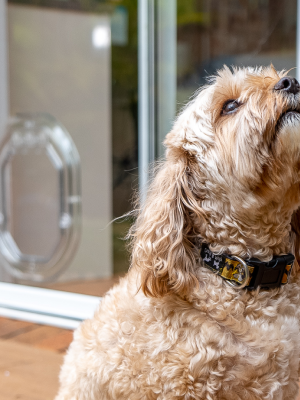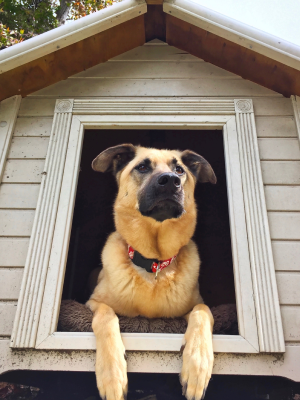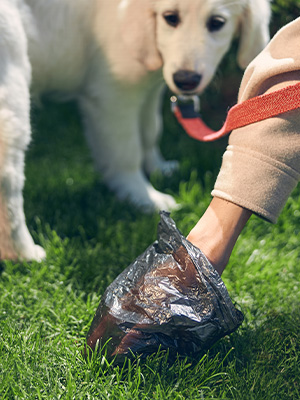
Dogs are known to do some gross things occasionally, like drinking toilet water or peeing inside, and we love them all the same. Noticing your precious pup eating poop, however, can push even the most fervent dog lover. While a taboo topic, the good news is dogs eating poop is more common than you realise! Statistics show that 25% of dogs have eaten poop at some stage, with Labradors and Golden Retrievers being the most common culprits of this rather interesting hobby. Its official name is coprophagia, and we are going to explain why your dog might be eating poop and how to stop it.
Our Blog
Our Blog
19/2/24
Help - My Dog Is Eating Poop!
Dogs are known to do some gross things occasionally, like drinking toilet water or peeing inside, and we love them all the same. Noticing your precious pup eating poop, however, can push even the most fervent dog lover. While a taboo topic, the good news is dogs eating poop is more common than you realise! Statistics show that 25% of dogs have eaten poop at some stage, with Labradors and Golden Retrievers being the most common culprits of this rather interesting hobby. Its official name is coprophagia, and we are going to explain why your dog might be eating poop and how to stop it.
What is Coprophagia?
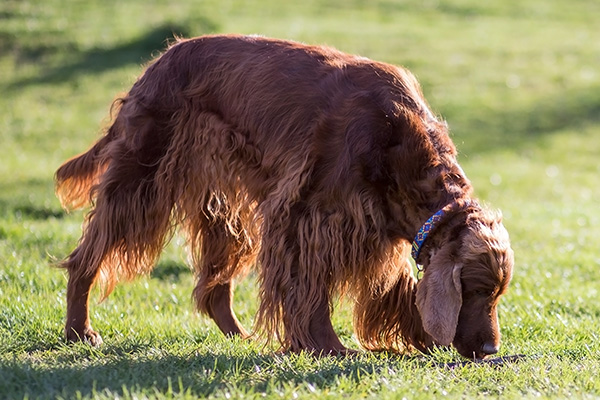
The scientific name for dogs eating faeces is coprophagia. A form of pica (swallowing non-food items), coprophagic behaviour involves eating their own faeces or that of other animals, particularly felines, cattle and horses. This behaviour is sometimes seen in puppies learning about the world and experimenting with taste. A dog eating poop off the grass regularly, however, might be an indication of a bigger problem.
Why Dogs Eat Poop
Understanding why your dog is eating poop is the first step toward a solution. It might also make you feel less freaked out by your canine companion’s disturbing behaviour. When our dog starts eating poop, it is natural to assume there is something wrong, either medical or psychological. But the new behaviour doesn’t necessarily indicate illness. Dogs can develop a taste for faeces for many reasons, from simple curiosity/boredom, to attention-seeking or anxiety. Puppies, for instance, have an insatiable curiosity, and it is common for a puppy to try faeces. Other dogs eat poop simply because they like the taste of it. For some dogs, eating poop is instinctual. A mother dog will naturally eat her puppy’s poop to clean up after them so that predators are unable to find the pup via smell.
Many scientists and veterinarians believe the cause for dogs eating poop can be attributed to either behavioural, psychological or medical issues. Before jumping to the conclusion your pup’s new habit is behavioural or psychological, it is essential to rule out any health problems. The list below provides an extensive breakdown of the potential reasons your dog could be eating poop.
Medical reasons.
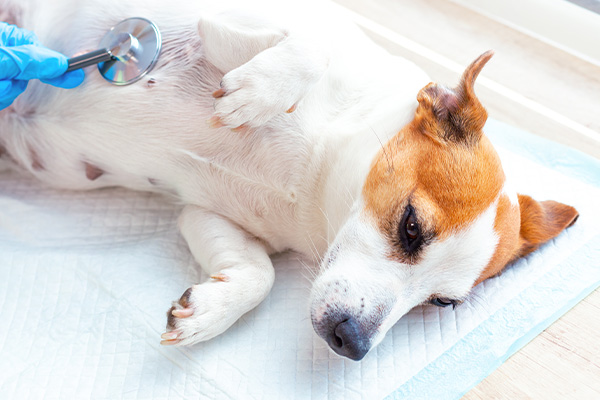
If your dog starts to eat poop out of the blue, it could be attributed to some underlying health problems. Medical problems are the least likely cause of coprophagia, but they need to be ruled out before delving into behavioural or psychological solutions. A trip to the vet for a physical examination, diet evaluation, stool and blood tests will identify any underlying medical causes.
- Dietary deficiency. One theory is that dogs eat poop because there is something missing in their diets, causing a vitamin deficiency and mineral deficiency. Studies have shown that dogs who eat poop often have a thiamine or vitamin B1 deficiency or an enzyme deficiency. Vitamin B1 and digestive enzymes aid digestion. The idea is that dogs instinctively consume faeces to replace missing nutrients in their diet and assist their digestion. If your veterinarian suspects a diet deficiency, specific blood tests can be ordered to confirm the diagnosis. Dogs with raw or homemade diets are more likely to have dietary deficiencies than commercial food eaters.
- Intestinal parasites. Intestinal parasites like roundworms, hookworms or whipworms can extract nutrients from a dog’s diet, leading to malabsorption, inflammation, and a nutrient deficiency, resulting in coprophagia. If your dog is older and has never displayed signs of coprophagia, your vet may suspect intestinal parasites. Ironically, a stool sample will confirm if the dog has any worms.
- Medications containing steroids. The hunger produced from medications with steroids can lead to dogs eating poop simply because of the increase in appetite. Dogs that are known to eat a lot have a higher rate of coprophagia.
- Diabetes, Cushing’s disease or hypothyroidism. Any of these diseases that lead to changes in appetite can result in poop eating.
- Dementia. Like humans, dogs can suffer from dementia. This condition relates to the aging of a dog’s brain, leading to changed behaviour and progressive confusion and disorientation. A symptom of dementia is odd behaviour, which may include eating faeces.
Behavioural reasons.
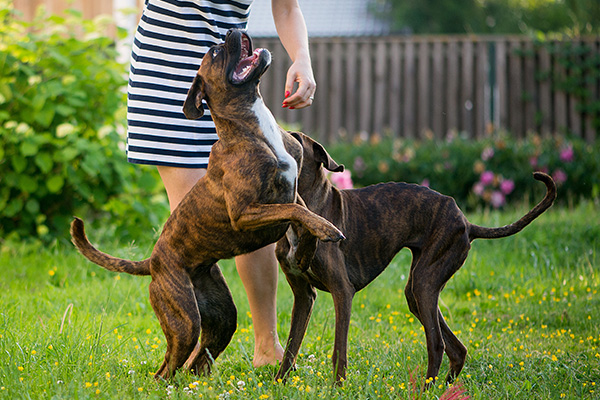
After ruling out a medical explanation for your dog eating poop, the next step is to examine behavioural causes. If your dog eats poop, the most common cause is behavioural. Many theories have been developed to explain what behavioural triggers may cause coprophagia in dogs, from developmental and attention-seeking to simple curiosity.
- Imitation. If you have added another dog to the family, the new pup might copy the behaviour of the original dog, including eating faeces. In the same way, puppies tend to copy their mother’s behaviour if they see them eating poop.
- Cleanliness. Mother dogs will keep a puppy clean and an area free from parasites by eating their young one’s faeces. This behaviour also helped protect the den from predators in the wild, removing the smell and making the new puppies harder to locate.
- Curiosity. Puppies are naturally curious and are prone to investigating everything in their environment. This includes poop which most puppies will try but grow out of.
- Incorrect training techniques. One way owners teach their dogs not to poop inside the house is by rubbing their noses in it. This training technique can sometimes lead to coprophagia.
- Attention seeking. Dogs looking for extra attention discover that eating poop will get them noticed quickly. A strong reaction of yelling or chasing after them is the attention they were seeking and so will repeat the behaviour. This negative attention-seeking behaviour is similar to when dogs jump or steal things to get a reaction.
- Scavenger instinct. Dogs’ natural inclination is to scavenge food, even if given a solid diet. Sometimes eating poop is attractive to dogs as they have had to forage for it.
Psychological reasons.
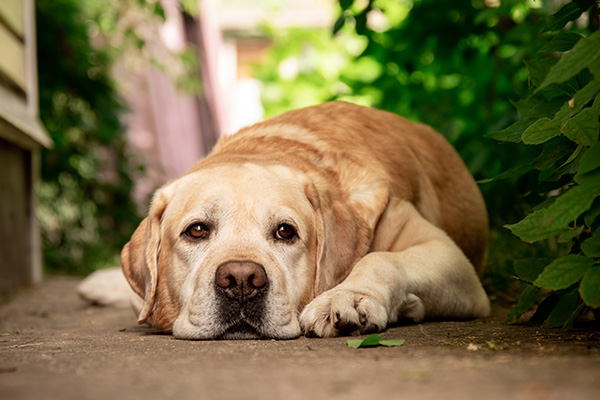
Occasionally dogs suffer from mental health issues, which could trigger coprophagia. Psychological reasons like boredom or anxiety may be the catalyst for the poop-eating habit.
- Boredom. If a dog is bored, it will seek out things to do. This could include eating their own poop in the backyard or raiding the cat’s litter box.
- Anxiety. A dog eating poop can be caused by an underlying issue with anxiety. This can be caused when the dog is separated from you or if the dog has been punished for defecating and anxiously trying to hide the evidence.
- Hunger. Dogs that are malnourished will eat anything, including faeces. However, even dogs that are well-fed are known to be constantly hungry and will also eat poop if it is there.
- Inappropriate association with food. If a dog is fed close to where its faeces is, the smells may blend, and it may make an association between food and poop.
- Tastes good. As awful as this is, it is possible that some dogs like the taste of poop, whether it is theirs or others. Dogs have a better sense of smell than us, and they may be able to detect undigested materials in the faeces that appeal to them.
What To Do If A Dog Eats Poop
If you look outside and see that your dog has eaten poop, don’t panic. We have long-term and short-term suggestions to help.
When this happens in real-time, some short-term tips are:
- Give them food and water to drink to eliminate the taste and smell from their breath.
- Give them a dental stick to chew on.
- Wipe their mouth and face with a fresh cloth.
- If you have a dog’s toothbrush, brush their teeth. Never use human toothpaste, as it can be toxic to dogs.
How To Stop A Dog From Eating Poop
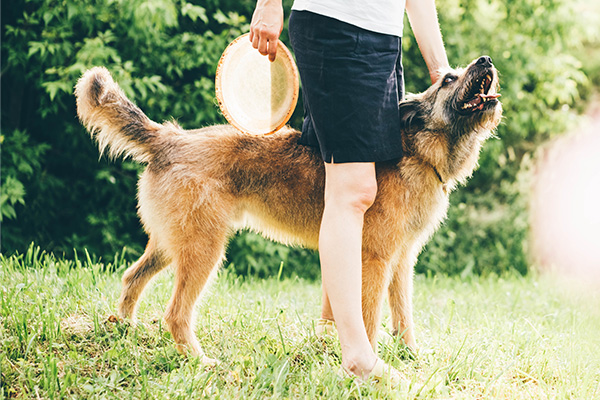
It’s all good and well to understand why your dog is eating poop, but more importantly, let’s look at how to stop it. Once any underlying medical issues have been ruled out, here are some tips to help you break the poop-eating habit of your precious canine.
- Pick up poop immediately. This probably seems like common sense, but if you pick up the poop straight away, your dog will not have access to it. This is the most effective way to break the cycle.
- Use repetitive training methods. By consistently discouraging your dog every time it eats poop, it will learn that this is a negative behaviour. You can do this by simply walking away when he does it. Do not make eye contact, speak or touch your dog. This type of silent treatment will indicate your displeasure.
- Prevent the dog from scavenging. Scavenging is a natural behaviour for dogs, so it is difficult to stop it altogether. However, you can help prevent your dog from scavenging by using anti-scavenging tools like muzzles and head collars and managing its environment.
- Teach your dog to leave it alone. You can stop poop-eating behaviour by training your dog to leave it alone. This training needs to be regular and consistent to be successful and might take a bit of time.
- Feed your dog more often. You don’t have to give your dog more food, but smaller meals more regularly may help ward off hunger and the desire to scavenge.
- Feed higher-quality food. All dogs need vitamins and minerals to thrive, and feeding your dog higher-quality food may prevent it from looking for nutrient sources in faeces.
- Increase mental stimulation and physical activity. By giving your dog plenty to do, there will be less likelihood of boredom leading to coprophagia. This could mean increasing walks, or using interactive toys and playtime to ensure your dog is mentally stimulated.
- Add pumpkin to the dog’s food. Sometimes dogs eat poop out of hunger, so keeping a dog full can be a deterrent. One trick to keeping your dog full is to add a couple of spoonfuls of unseasoned pumpkin to their meal. While this will not add many calories, it adds a bit of bulk to their food and keeps them feeling full. Pumpkin has additional benefits of preventing diarrhoea and constipation and promoting urinary tract health.
- Make the poop less appealing. Some tastes and smells are unappealing to dogs, so with this theory in mind, using taste aversion products will make the poop less appealing. Some taste aversion products are for consumption, and others are for use after the dog has pooped as a deterrent. Natural poop deterrents like pineapple cause the poop to be acidic and unappealing after consumption. Green vegetables like broccoli, spinach, or brussel sprouts not only bulk up their meal but make their stool less pleasant to smell and taste. There are even dog chews and coprophagia deterrent powders that make the poop taste bitter and less appealing to eat. Another way to make the poop less appealing is using a bitter spray. You can purchase bitter sprays or make up your own with a formula of half apple cider vinegar and half water. As dog poop is already acidic, this adds another layer to the faeces to make it unappetising to your pooch.
- Keep an eye on your dog. Watch your dog when out on walks or at the dog park to make sure it is not finding other dog poop to eat.
- Keep the dog out of the cat litter box. Use gates or a closed door to make sure the dog has no access to the cat litterbox to eat cat poop.
- Give the dog vitamins and supplements. If coprophagia has developed due to an enzyme or vitamin deficiency, a supplement may help. If an older dog suddenly develops coprophagia and there is no sign of dementia, it is potentially an enzyme deficiency, so try a digestive enzyme replacement powder. Alternatively, vitamin B1 supplements can be effective for a thiamine deficiency. Contact your veterinarian to determine the deficiency prior to commencing treatment.
Stopping Dogs Eating Cat Poop
Even if your dog has never eaten its own faeces, there is a possibility it would have tasted from a cat litter box, given the chance. This will be no surprise to anyone with a dog and a cat. Some dogs love to eat cat food, so it follows that their faeces may appeal. Dogs eat cat poop for the same reason they eat their own or others. It could be dietary, medical or just a learnt behaviour. While it might seem like just a gross habit, eating cat poop could make your dog very unwell as it carries potentially harmful parasites and diseases.
- To stop your dog from eating cat poop
- Put the cat litter box in a room the dog cannot access.
- Clean up the cat litter straight away.
- Use stool deterrents.
Can A Dog Get Sick From Eating Poop?
Sometimes, dogs can get sick from eating poop, particularly if it is from another species which could be riddled with disease or parasites. Poop eating opens the door to things like intestinal worms, e coli, salmonella, parvovirus or giardia and should be discouraged. There is also the potential of ingesting another animal’s medication via the faeces, which could cause your dog to become unwell. Signs your dog could be sick from eating poop include vomiting, diarrhoea, gastroenteritis, loss of appetite and tiredness. Don’t forget your canine companion is licking and touching other things in the home after eating dog poop. Anyone at home might risk contracting a nasty tummy bug, or salmonella.
If this has been a long-time issue, it is wise to consult a veterinarian. Your vet can rule out any medical issues and may refer your pet to a dog behaviourist. Animal behaviourists specialise in dog psychology. To work on modifying or changing the dog’s behaviour, the behaviourist will identify the problem and work to remove any underlying emotional distress. They will then aim to retrain away from this behaviour for good. Sometimes our dogs do strange things, but eating poop is one of the most cringeworthy!
Latest Posts
Latest Posts
Questions? We’re here to help.

